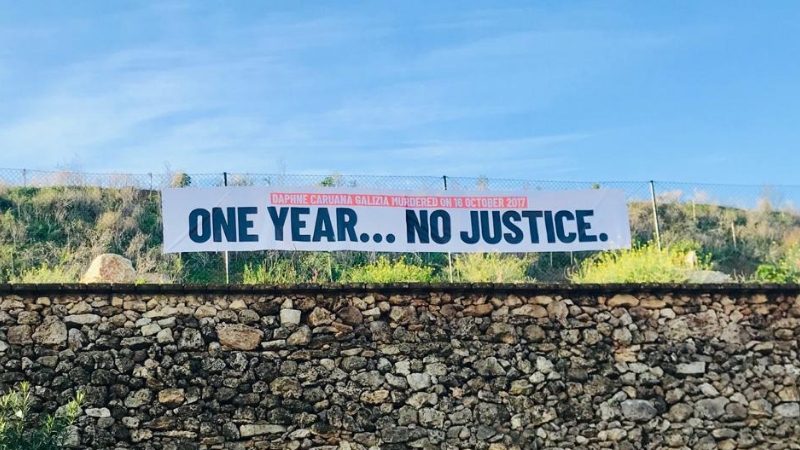Her words in our last conversation a few days before she was killed in October 2017 are impossible to forget: “…I get a sense of time running out. There are so many things I wanted to do that I haven’t done.”
Daphne Caruana Galizia was robbed of that. Her family and friends were robbed of her. Her readers were robbed of her writing – if anyone was leaving “no stone unturned” it was her.
Her assassination shocked the country. There were bombs, but that was the criminal underworld not a journalist.
Whether you liked Caruana Galizia or not is irrelevant. The point is that she was killed. And how she was killed.
The country has come to the point where a journalist can be blown up to high heaven in broad daylight a few metres away from her home. The blast was a show. It was a message to the country.
Someone bought Caruana Galizia’s silence and the country has a right to know who. The government has an obligation to find out. Such a brutal act and such shameless abuse cannot happen without consequence. Impunity puts others in danger.
In her own words: “Even when justice seems impossible or when fighting seems futile, giving up will only increase the danger for everyone.”
Over the last year, things got worse.
Malta’s press freedom ranking took a nose dive – the sharpest drop in press freedom of all 180 countries covered by the 2018 World Press Freedom Index.
The Economist Intelligence Unit’s Democracy Index lists Malta as experiencing the worst deterioration in its democracy score of any country in Western Europe.
Moody’s August 2018 report mentions “evidence of an erosion of institutional strength, in particular in relation to the rule of law or control of corruption” as being grounds for a downgrade. There was no mention of this in the government’s press release on that report.
The European Parliament, the European Commission, the Council of Europe and institutions within them are busy scrutinising Malta’s checks and balances.
Clearly, something is not right.
To dismiss this as the work of ‘traitors’ is a huge insult to people’s intelligence, and to the intellect and capabilities of all the people appointed to all these different international bodies.
There are reasons why those appointed are the ones there, rather than others. Competence and experience may have something to do with it – this is not Malta, where knowing the right people is enough. These are people tasked with huge responsibilities and their lives do not revolve around Malta, despite what many seem to think.
Malta just became impossible to ignore. Allowing a year to pass with no indication of who commissioned a journalist’s death does nothing for a good reputation.
The call for justice for Caruana Galizia is inseparable from the fight for press freedom and freedom of expression, particularly when the government is busy blocking off public monuments. It is inseparable from the defence of human rights because the first fundamental right to consider is ‘the right to life’.
That is why a public inquiry is necessary. Yet, Prime Minister Joseph Muscat is set against it. He told BBC 4 Today programme that “a second public inquiry is not needed,” and he repeated that again last week (despite the fact that the Attorney General’s [second] reply to the request for a public inquiry said it was being “actively considered”).
It is unclear what Muscat means by a “second public inquiry” since such an inquiry would be different to the ongoing magisterial inquiry, which has a narrower remit.
A public inquiry is an obligation under Article 2 of the European Convention on Human Rights (ECHR), which guarantees the right to life. It is not a favour.
It would look at ways of preventing further deaths, not just whether Caruana Galizia’s could have been prevented. The ongoing criminal investigation and magisterial inquiry cannot cover that. They are neither tasked, nor equipped to do so.
British lawyer Tony Murphy, who worked on the legal opinion for a public inquiry, said the Prime Minister missed the point: “The criminal proceedings are investigating a much narrower issue which is who detonated the bomb, and the magistrate is investigating whether others should be charged with criminal offences for commissioning that heinous crime”.
However, neither process is investigating the wider and much more serious question as to whether the State was responsible for her death “either by failing to protect her from others or as a result of State collusion, which cannot be ruled out”.
While the Prime Minister is ruling out the possibility of such an inquiry, more effort seems to be dedicated to reminding people to hate her, to discrediting the victim’s family, to delaying investigations and court proceedings, to shutting down debate and wiping out her memory.
Why? The Prime Minister has nothing to fear but the truth.
Published in The Times of Malta on 16 October 2018.













